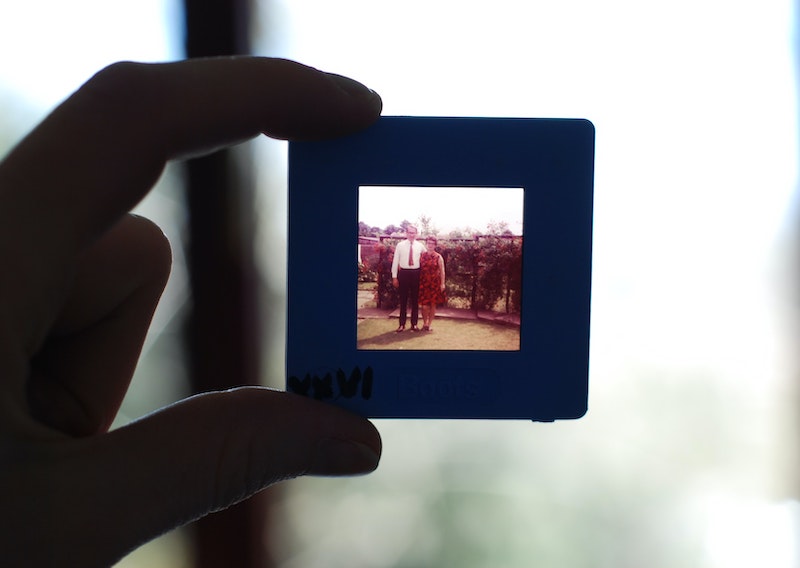Seeing Through New Eyes: Addressing Dementia Stigma
 Submitted by Anne Kenny, MD
Submitted by Anne Kenny, MD
Together in Dementia
Stigma affects a number of things when considering dementia, including the person’s willingness to seek diagnosis, to seek support once diagnosed, and a lack of willingness to participate in research.
Can we challenge our own prejudice?
I’m in Philadelphia looking after the cat of my youngest child (who is 24 years old, but still my baby!) I would describe myself as a “dog person” more than a “cat person” but being here with Rigatoni Macaroni (Toni for short) has me seeing through new eyes.
A Different Dementia Perspective
Because my child loves this creature so much (thus, why not just anyone can sit for him!), I have looked for the good in him too.
How powerful that is! A simple example. A simple mindset shift. And I love this little guy too! I find him sweet and adorable. And – I’m afraid of cats!
Or was! (It’s a long story about my sister’s cat trapping me on a couch when I was about 20 years old, hissing at me and arching his back, when he likely was just mad at me for sending out non-trusting vibes!)
And I was afraid of dogs (bit when I was a young paper carrier), until my son got the sweetest, most adorable dog who I began to see through new eyes when I saw how much my son loved him!
A Fresh Set of Eyes
The point of all this is that it got me thinking about stigma. Specifically, stigma around cognitive loss and dementia – Alzheimer’s disease, fronto-temporal, Lewy body, Parkinson’s disease-related, and all the others.

Stigma and Dementia
What do we know about stigma? Why is it there? There is stigma around the diagnosis of several medical conditions: any or most mental health conditions, AIDS/HIV, addictions, and Alzheimer’s disease. There is also stigma around talking about several subjects: gender discrimination, salary, and death.
We need to deal with stigma to move forward. We need to understand what gets in the way of dealing with the issues ourselves and in those we encounter whether family, friends or healthcare workers.
Ageism, Too
We must not forget ageism either. Mary Pipher, cultural anthropologist, psychologist and author of Women Rowing North, speaks of ageism in her book. She describes a Yale School of Public Health study that reveals 75% of young people denigrate older adults on Facebook (pg 29).
Pipher uses this study to highlight that there is no “cultural script” for stories of “our complexity, our wisdom and our joy” and that this isn’t true in every culture.
In the US, we are in a culture that values independence and we see ourselves in this culture as independent or dependent. Either/or. In fact, as Pipher posits, we are all ALWAYS interdependent.
She suggests if we could see ourselves this way, we could “reconceptualize the interactions between the young and old. Young people would be more appreciative of what we have to offer. Older people could see themselves as part of a circle of caring that begins with our oldest living relatives and flows down to the youngest baby.” (pg 30).
When we don’t interact, we stereotype. “When we interact, we understand our interconnectedness and value each other’s gifts.” (pg 31).
The work of Pipher reminds us to challenge our own ageism (and our own stigma around cognitive loss) and develop interconnectedness, across generations, across cognitive abilities. We need to begin to fight our isolation, a valued aspect in our culture, but not a value that enhances our well-being.
Stigma from the Eyes of those Living with Dementia
Kate Swaffer, advocate for and person living with dementia and author of What the Hell Happened to My Brain, often says there is so much discussion about people with dementia without them. And she reports, if this is so, the stigma will not end.
The role of stigma includes “being negatively labelled a loss of status and power, discrimination and stereotyping. Stigma affects a number of things when considering dementia, including the person’s willingness to seek diagnosis, to seek support once diagnosed, and a lack of willingness to participate in research” (Swaffer Chapter 18, page 191-192).
When individuals are interviewed about what they think about people living with dementia, reported responses are that people living with dementia cannot participate in meaningful conversations (50%), can be irritating (30%) and have poor personal hygiene (14%) (Phillipson L, Magee C, Jones S, Skladzien E. Correlates off dementia attitudes in a sample of middle-aged Australian adults. Australian J Aging 2012; 33:158-163.).
It is likely most of us think these things and you may have these thoughts about dementia yourself. Richard Taylor, PhD, also an author (Alzheimer’s from the Inside Out), advocate and individual who lived with dementia, spoke of his own concerns that “Alzheimer’s has replaced cancer as the most feared disease people can imagine. We don’t want to admit to ourselves that we need to know much about it. Out of sight, out of mind. It’s the way I was living. It’s the way I would still like to live.” (page 51).
Consider This: The Dementia Challenge
The diagnosis of dementia puts us face-to-face with our own prejudices.
- Can we face those demons?
- Can we address our own prejudices in order to accept our or our family member’s diagnosis and challenge the prejudices?
- Can we potentially learn a new way to see our dementia so that we can grow and thrive while living with a disease most do not want to accept?
Let’s write a script for “our complexity, our wisdom, and our joy”.
Can we see dementia through new eyes? I know we can!
 Dr. Anne Kenny, Founder
Dr. Anne Kenny, Founder
Together in Dementia
Visit Dr. Anne Kenny’s profile on Dementia Map or visit her at Together in Dementia.
Read more great articles like this one on the Dementia Map Blog!

